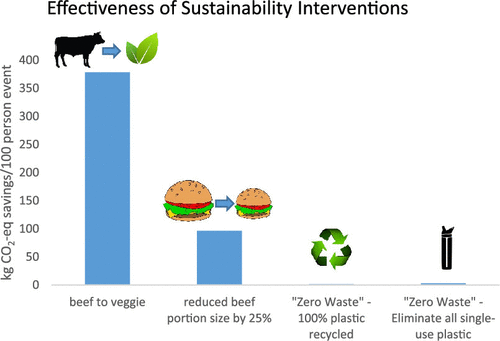You may be wondering what your everyday diet has to do with climate change… and a few years ago I sat within that same position. Until I learnt that our aggressive production of some foods is harming the sustainability of our current environment.
Today, Farihah Choudhury, a recent postgraduate of the London School of Hygiene and Tropical Medicine, shares the small things we can do to improve our impact on the environment. Farihah’s interests include food policy, systems, sustainability, food justice and culture. This amazing woman is also a Public Health Practitioner in a UK county council, leading on their Healthy Weight Strategy. I first encountered her on Twitter (@NutritionFSC) in a few AfNutr monthly chats and then while remotely volunteering with Food For All UK. I have been enjoying her Instagram posts where she shares lots of insight on sustainability, thrifting and reducing food waste for people like me who are working towards a more sustainable lifestyle.
This post is the first in many on sustainability as it relates to eating habits and food systems. Farihah is also featured on this month’s #NutriChat on sustainability and diet! (details will be on my Instagram @NourishbyCH). I’m excited to have Farihah share her expertise with us!

To find more of Farihah, you can follow her on Twitter @NutritionFSC or check out her Instagram @easypeasysustainability.
There was a time many years ago when I thought nutrition and planetary sustainability were two far removed issues, neither having a palpable impact on the other and that environmental issues were more about gas-guzzling cars and single-use straws. Slowly I started to realise that our diets, and by extension, the global food system, were one of the largest contributors to global warming and climate change, as well as habitat destruction, water scarcity and a host of other environmental issues. The sheer volume and demand for food, particularly animal products, has engendered a global appetite for supplying unsustainable amounts of food.
As many local and national authorities in the world are declaring a climate emergency, it is extremely important now more than ever as practising nutritionists, to incorporate sustainable eating into our practice. Indeed, it is possible to have both a sustainable and healthy diet – which is where nutritionists come in.
“Sustainable Healthy Diets are dietary patterns that promote all dimensions of individuals’ health and wellbeing; have low environmental pressure and impact; are accessible, affordable, safe and equitable; and are culturally acceptable”
FAO, 2019
Key issues with the current food environment
- Food production is one of the biggest contributors to environmental destruction.
- Animal agriculture, particularly red meat, is a huge contributor of greenhouse gases such as methane from livestock, and carbon dioxide from the industrial processes that are needed to grow, process and transport animal products. Animal agriculture is responsible for up to 30% human induced GHG emissions
- Animal agriculture has a large water footprint, accounting for around 70% of freshwater use
- Animal agriculture is also responsible for substantial land use, leading to habitat destruction, including large swathes of forestland
- At the same time, we are experiencing real-time consequences of global warming and climate change, with increased flooding, earthquakes and extreme temperatures worldwide but especially in climate-vulnerable countries
- The food system contributes substantially to the climate crisis, and a sustainable and healthy food system is paramount in protecting global health.
- It is estimated that around 25% of food brought into the home in the UK is lost as food waste, this is another major contributor to energy wastage and greenhouse gas emissions
- Single use plastic is also an issue for the environment albeit a smaller one in the grand scale of things – it litters landfills and takes years and years to decompose, even then, leaching toxins into its disposal site
Sustainable solutions to problems

It is clear that one of the biggest food-related shifts that needs to occur is animal product reduction, particularly red meat, due to the labour and land use required to rear ruminant livestock. Unfortunately, the focus has often veered from this, which is perhaps a less palatable, harder to fathom solution than waging a war against single-use plastic, which has a comparably lower impact on the environment. However, in recent years sustainable diets appear to be very much on the agenda, with interest in vegan diets soaring worldwide. Shifts towards plant-based diets could mitigate negative consequences of the food system, reducing land needed to grow food, along with the water footprint, and energy needed to grow and process food. There could be savings of up to 70-80% in GHG emissions and land use, and up to 50% of water use.
Healthy, sustainable diets
There’s no need to panic though – according to the pivotal Eat-Lancet report released in 2019, provided there is a large reduction in animal product consumption, and an increase in complex carbohydrates, vegetable proteins such as beans, pulses and legumes, nuts seeds, and fruit and vegetables, then you do not have to cut out animal products altogether. In other words, to mitigate the effects of diets on the environment, we don’t all need to go vegan. Moreover, ‘flexitarian’ diets are thought to be more realistically achievable on a population level, as individuals are more likely to reduce their meat consumption than eliminate it together. We can also promote the combined actions of reducing household food waste by improving how we store and plan our food and meals, discovering new ways to cook food (did you know you can eat banana peels?) as well as limiting our use of single-use plastic where possible.
References and further reading
- Aleksandrowicz L, Green R, Joy EJ, Smith P, Haines A. The Impacts of Dietary Change on Greenhouse Gas Emissions, Land Use, Water Use, and Health: A Systematic Review. PLoS One. 2016;11(11)
- EAT-Lancet Commission. Food in The Anthropocene: the EAT-Lancet Commission on Healthy Diets From Sustainable Food Systems [Internet]. The Lancet; 2019 January.
- Hallström E, Carlsson-Kanyama A, Börjesson P. Environmental impact of dietary change: a systematic review. Journal of Cleaner Production. 2015;91:1-11.
- Germanwatch e.V. Global Climate Risk Index 2020 [Internet]. Bonn; Germanwatch; 2019 December. 43 p.
- Parfitt Julian, Barthel Mark, and McNaughton Sarah 2010. Food waste within food supply chains: quantification and potential for change to 2050 Phil. Trans. R. Soc. B3653065 3081
- Sabaté J, Soret S. Sustainability of plant-based diets: back to the future. The American Journal of Clinical Nutrition. 2014;100(1):476S-82S
- Webb, H.K.; Arnott, J.; Crawford, R.J.; Ivanova, E.P. Plastic Degradation and Its Environmental Implications with Special Reference to Poly(ethylene terephthalate). Polymers 2013, 5, 1-18.
FAO: Sustainable Healthy Diets: Guiding Principles https://www.who.int/publications/i/item/9789241516648
British Nutrition Foundation: Healthy, Sustainable Diets
https://www.nutrition.org.uk/nutritionscience/sustainability.html